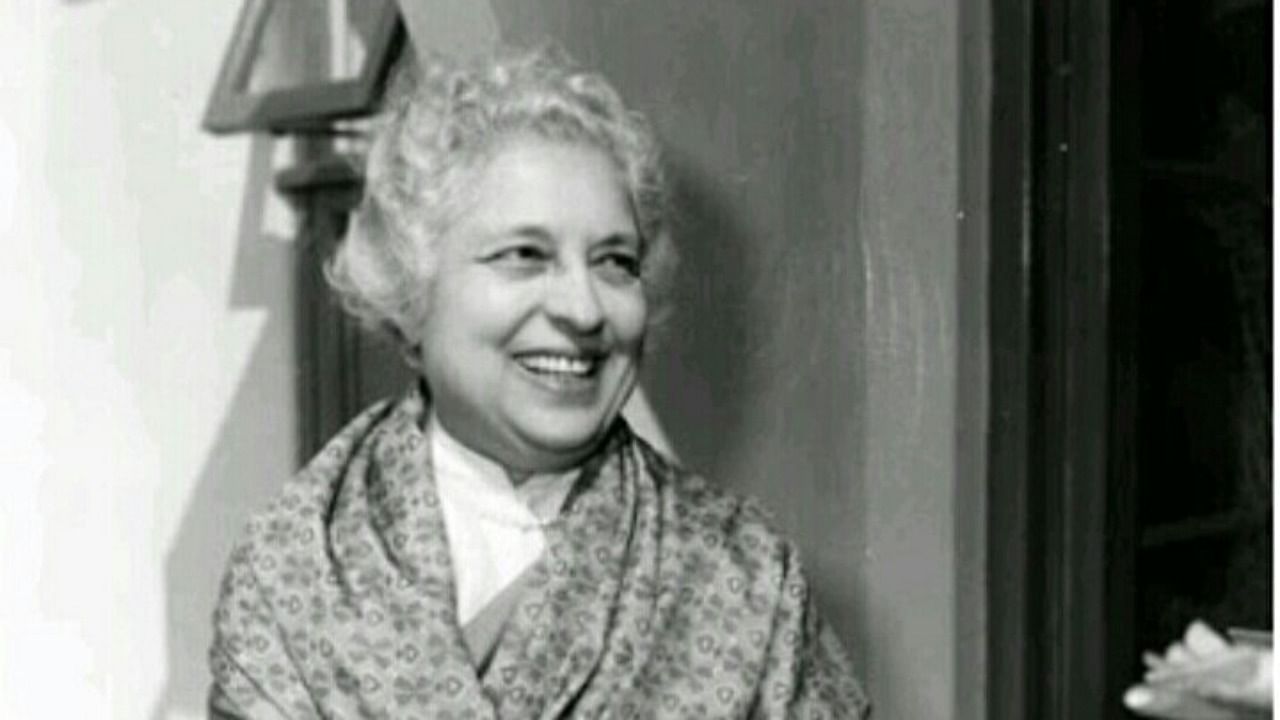
In the immediate aftermath of Partition, when the atmosphere in the whole country was overladen with violence and communalism, a Muslim woman from a conservative background stood up against the orthodox and communal elements of society and spoke heroically in the Constituent Assembly of India. “Those Muslims who wanted to go to Pakistan have done so. Those who decided to stay here wish to be on friendly and amicable terms with the majority community and realise that they must develop their lives according to the environments and circumstances existing here. As nationals of this great country, we share the aspirations and the hopes of the people living here, hoping at the same time that we will be treated in a manner consistent with honour and justice.” That dauntless woman was Begum Qudsia Aizaz Rasul, who was elected to the Constituent Assembly from the United Provinces (now Uttar Pradesh) as a Muslim League member in July 1946.
Born in a ruling family of Maler Kotla, a Muslim princely state in Punjab, Qudsia was married at a young age to Nawab Aizaz Rasul, a Taluqdar from Sandila (UP). Muslim families in UP observed strict purdah in those times, but Qudsia came out of it to get elected to the UP Legislative Council, leading to her being called “the two-faced Begum” -- she walked openly in Lucknow, but was hidden to public view on her arrival at Sandila. She defied a fatwa issued against her for being a non-purdah Muslim woman and standing for elections. Against all odds, she not only won with a good margin but also remained in the Council from 1937 to 1952, even becoming Leader of the Opposition.
In the UP Legislative Council, despite belonging to the Taluqdar family herself, Qudsia was instrumental in the passage of the Zamindari Abolition Bill. She believed that “Zamindars should see the writing on the wall and graciously give rights to the farmers who toil and sweat.” During Partition, Qudsia chose to stay back in India despite much persuasion and pressure from the leaders of Pakistan as well as some of her family members.
Qudsia came into limelight due to her presence in the Constituent Assembly, where she not only spoke about secularism but was also instrumental in creating a consensus among Muslims to voluntarily give up separate electorates and reservation in legislatures for the sake of the merging new India. When Sardar Patel moved the provision to remove separate electorates and reservations for the minorities to make joint electorates the basis of their representation, Qudsia supported the motion, against the wish of many of fellow Muslim members. She said that Muslims should fall in line with the main current of political thought, as in a secular state separate electorates or religion-based reservations had no place. She said, “To my mind, reservation is a self-destructive weapon, it keeps up the spirit of separatism and communalism alive, which should be done away once and for all.”
Qudsia recollected in the Assembly that Muslims living in the country had been the worst sufferers as a result of the events that took place during Partition. She felt it would be better to break with the past completely and do away with all the fears and turn over a new page for a country in which all communities would feel secure. However, in the same breath, she also said that it was for the majority to realise its duty not to discriminate against any minority and to deal fairly with them.
It was due to Qudsia’s persistence that all Muslim members eventually agreed to do away with the demand for reservation. As a member of the Fundamental and Minority Rights Committee of the Constituent Assembly, the welfare and protection of minorities was always on her mind. She was convinced that the fundamental rights guaranteed in the Constitution made no distinction between different religions and looked forward to the day when individuals would cease to regard themselves as members of majority and minority communities.
Qudsia’s feats continued as she was elected to the first Rajya Sabha in 1952. Later, she headed the All-India Women’s Hockey Association, which made great strides under her and became the first all-India women’s sport recognised by the Ministry of Education. To honour her contribution, the Begum Rasul Trophy (Women’s hockey) was named after her. She also contributed greatly towards the upliftment of women and the education of Muslim girls.
Begum Qudsia Aizaz Rasul played her valorous role in nation-building. After leading a life that constantly kept her on her toes, she received the Padma Bhushan in 2000, seated on a wheelchair at the age of 91, as a fitting acknowledgement of her enormous contributions in various fields. When we celebrate International Women’s Day, we can do so truly and proudly by remembering women like Qudsia and her remarkable endeavours toward the evolution of a progressive Indian society.
(The writer is a Post-Doctoral Research Fellow, UGC, New Delhi)